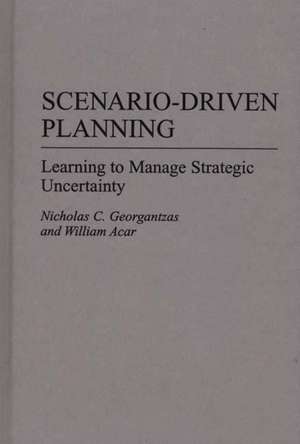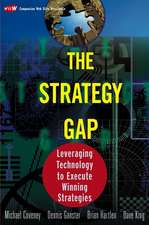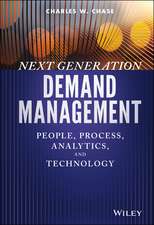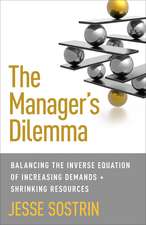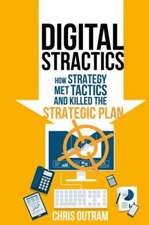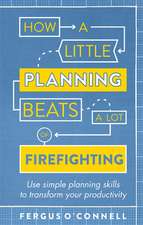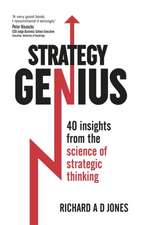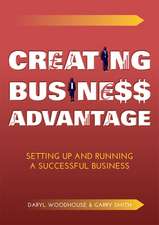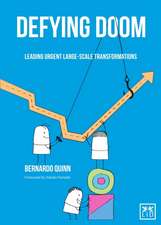Scenario-Driven Planning: Learning to Manage Strategic Uncertainty
Autor William Acar, Nicholas C. Georgantzasen Limba Engleză Hardback – 27 feb 1995 – vârsta până la 17 ani
Preț: 441.47 lei
Preț vechi: 709.85 lei
-38% Nou
Puncte Express: 662
Preț estimativ în valută:
84.49€ • 87.88$ • 69.75£
84.49€ • 87.88$ • 69.75£
Carte tipărită la comandă
Livrare economică 14-28 aprilie
Preluare comenzi: 021 569.72.76
Specificații
ISBN-13: 9780899308258
ISBN-10: 0899308252
Pagini: 432
Dimensiuni: 156 x 235 x 30 mm
Greutate: 0.72 kg
Ediția:New.
Editura: Bloomsbury Publishing
Colecția Praeger
Locul publicării:New York, United States
ISBN-10: 0899308252
Pagini: 432
Dimensiuni: 156 x 235 x 30 mm
Greutate: 0.72 kg
Ediția:New.
Editura: Bloomsbury Publishing
Colecția Praeger
Locul publicării:New York, United States
Notă biografică
NICHOLAS C. GEORGANTZAS is Associate Professor of Management Systems at Fordham University and a management systems consultant. Widely published on topics on model-based strategy support, decision framing, and behavioral simulation modeling, he has consulted in commercial and retail banking, computer and information systems, education, entertainment and multimedia, and other industries.WILLIAM ACAR is Associate Professor of Management Systems and Administrative Sciences at the Graduate School of Management of Kent University. The author of numerous published articles, internal reports, and conference presentations, Dr. Acar has developed a number of methods for management theory and practice. He has consulted to a number of business firms and nonprofit agencies, and has developed a causal mapping method for the analysis of complex business situations called CSM (Comprehensive Situation Mapping).
Cuprins
Figures and TablesPrefaceIntroductionWhy Scenario-Driven Planning?Productivity and StrategyEnvironmental Triggers and ScenariosThe Role of the EnvironmentEnvironmental Turbulence and UncertaintyAssumption Analysis for Strategic TurnaroundIntroductory ApplicationsInfoplusCombank (A)Competitive Advantage Through ScenariosCompetitive Intelligence Systems for the 1990sFeatures of the Proposed Planning ProcessStandard ApplicationsComputing ScenariosSystem DynamicsReperceiving in the Multiverse of RationalityStrategy Designs of the 1990sPlanning Technology for the 1990sAppendix A: Theoretical Foundations of Scenario-Driven PlanningAppendix B: The Art of Organizational LearningAppendix C: Intelligence-Amplifying ToolsBibliographyIndex
